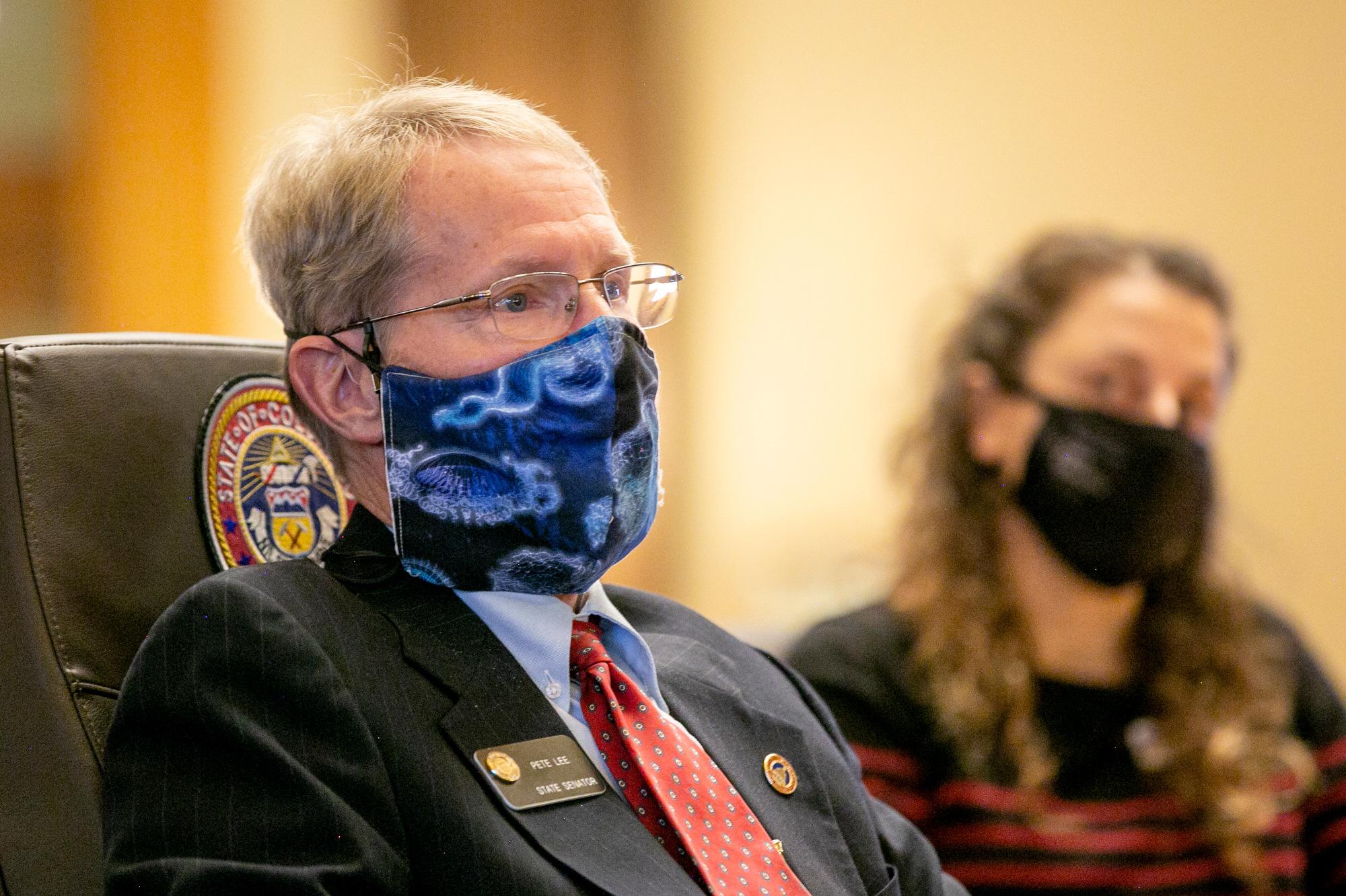
Updated 11:18 p.m.
A grand jury has indicted state Sen. Pete Lee on one count of registering to vote at an address where he doesn’t live.
The charge is a class 5 felony, which can be punished by up to two years in prison and a fine of $1,000 to $100,000. Lee’s first court appearance is scheduled for September 8.
While it isn’t clear where prosecutors are alleging Lee actually lives, Colorado’s constitution requires state lawmakers to reside in the district they represent. A spokesman for the District Attorney's office said he could not provide any details on the case. The district Lee represents covers Manitou Springs and central portions of Colorado Springs.
"I have just recently received the actual charge and have yet to obtain all pertinent information, so I cannot comment on the allegation. I have engaged counsel to evaluate the one charge and related issues," said Lee in a statement Tuesday. He also noted he is not being accused of voting more than once in the same election.
Lee's lawyer said they plan to dispute the charge "vigorously."
Two years ago Lee was caught discussing his residency in a hot mic moment on a remote legislative meeting during the pandemic. In a recording of the audio provided to journalists, he can be heard talking with a third party about facing a residency complaint and said he'd been told to speak with the state Democratic Party’s lawyer.
During his time at the Capitol, Lee made a name for himself as a progressive justice reformer. He’s sponsored bills to limit the use of cash bail, take on implicit bias in jury selection, and reduce the penalties for certain crimes. He chairs the Senate’s Judiciary Committee. Lee was the target of a recall effort in 2019, but organizers failed to gather enough signatures to force the question.
This past legislative session was Lee's last. The recent redistricting process drew him out of Senate District 11 and into SD-12. However, because the district's current senator, Republican Bob Gardner, is not up for reelection this year, Lee couldn't challenge him for the seat.
According to Senate President Steve Fenberg, Lee asked to be removed from his interim committee assignments until his case is resolved.
"Senator Pete Lee is a dedicated public servant who has spent his career supporting his community and working to improve the lives of all Coloradans," Fenberg said in a statement. "I trust he’ll have a fair opportunity to be heard and that the legal process will allow for an airing of all of the facts."
Colorado's GOP blasted Lee over the allegation.
"It's a good thing Democrat Senator Pete Lee isn't running for re-election because he doesn't deserve to represent the people of Colorado for another term after blatantly lying to voters about his voter registration," said party chairwoman Kristi Burton Brown. "With all the questions regarding our elections, our elected officials should be the ones who are helping build faith in our elections, not undermining them."
Lee isn’t the first lawmaker to be caught up in a residency complaint, but a felony indictment is exceedingly rare.
While the law requires a candidate to have lived in a legislative district for at least one year before the November election to qualify to represent that district, the way Colorado’s law is written, challenging residency requirements isn't an easy matter. It requires a voter in the district to file a legal complaint, and then post a surety bond of at least $13,000 to cover any court costs should the challenge fail.
The issue surfaced in recent years when Republican Rep. Matt Soper faced a complaint from a resident in his Western Slope district. The man, who had worked for an unaffiliated candidate in the House race, alleged that the newly elected lawmaker didn’t live at his Delta address. Soper’s mother owns the home and was renting it to a family.
In that case, the House declined to take up the matter.
Editor's Note: An earlier version of this story incorrectly stated that Lee is leaving the legislature because of term limits. It has been corrected.









